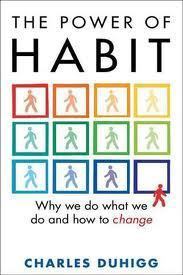Raj Shankar's Blog, page 57
March 5, 2013
Vedantic Wednesday: The Happy SELF
The nature of SELF is bliss or Ananda. This we can understand when we look at each of our activities in the world. We always work towards one need – the need to be happy. Consider a student, a mother, an industrialist or a social worker – they throw themselves at something in the world because they derive happiness from doing this. Some of us seek happiness in activities that benefit us as individuals. Some of us seek the same happiness by doing service. If we can stop judging the ‘quality’ of happiness – we see that the only motivator behind all our actions is to seek happiness.
work towards one need – the need to be happy. Consider a student, a mother, an industrialist or a social worker – they throw themselves at something in the world because they derive happiness from doing this. Some of us seek happiness in activities that benefit us as individuals. Some of us seek the same happiness by doing service. If we can stop judging the ‘quality’ of happiness – we see that the only motivator behind all our actions is to seek happiness.
It is so true even with self destructive habits. When one becomes depressed and resorts to drinking, other abusive habits or when one even takes extreme step of suicide; these are motivated from moving away from situations that are NOT making one happy. Whatever be our state in the world – be it young, old, aged, diseased, etc, we all want to be happy. For some it is in health, for some in fame, for some in relationship, for some in other’s smile.
All our actions then seem to be aligned to the base nature of our SELF – happiness. Then why are we feeling unhappy despite success? Why do we feel pressurised doing what supposedly gives happiness? Why do we feel incomplete?
It is because of our ignorance. We are ignorant of the fact that however we are today in the worldly context, as SELF we are at this point in time – complete, absolute and in state of Ananda. Forgetting this, in our ignorance instead of connecting with the happiness within us – we search for it outside. In external objects.
Our ignorance makes us a victim of sensory enjoyments. As we try to appease each one of the sensory demands we realize our need to feel happy is not fulfilled. Over time the futility of this external search sets in. It weighs us down. It is only when we leave the external search for happiness and turn it inwards that we find eternal happiness or bliss. But for many of us it takes more than a lifetime to come to terms with this. We do not turn our search inwards. Till our last minute we attempt to grab the happiness that we feel is present in external objects, while from the very start we have it within us as the absolute SELF.
It is easier written than believed. It is easier written than experienced. We cannot accept that a beggar on the road is as complete as the richest man when we look at the SELF that propels them. Our conditioning poses a lot of questions on the veracity of this claim. It is difficult to understand the nature of the absolute when we operate in the realm of a relative world.
And this truth cannot be understood by any other means than individual anubhava or experience. Study of scriptures and contemplation on the lines of the principles within them will help us in directing our thinking inwards, will give us courage to break free of what we believe today is the truth!


March 4, 2013
Is working from home really working?
Everything comes a full circle. A generation earlier – mark of manhood was in the head of the family going everyday for  work. If the working place is a bank or a government office that much better. The leather bag in a man’s hand was the proof that he was working hard. This all changed when the era of working from home dawned on us. With corporate encouraging this habit in an attempt to lower their overhead costs and to increase effectiveness of employees, this became a new trend. Many employees however today do feel, working from home is far from a dream. From a fixed work hour it has shifted to a 24*7 demanding routine.
work. If the working place is a bank or a government office that much better. The leather bag in a man’s hand was the proof that he was working hard. This all changed when the era of working from home dawned on us. With corporate encouraging this habit in an attempt to lower their overhead costs and to increase effectiveness of employees, this became a new trend. Many employees however today do feel, working from home is far from a dream. From a fixed work hour it has shifted to a 24*7 demanding routine.
Today we seem to have come a complete circle. Proof for this can be seen in Yahoo’s CEO Marissa Mayer’s announcement http://bit.ly/15gjHVQ
Though there has been a heavy debate over the reasons behind this announcement, the key official reason that is being given is working in isolation is inhibiting creative capability of workforce. Yahoo fears working alone is not effective as it does not permit building of close knit teams. Something that has been considered a fundamental success factor in highly innovative environments.
We are too early in this arc of the circle to pass any judgement. There is still a lot of arguments for and against the practice of working from home. Here is my take:
The whole idea of working in itself is a social activity. One creates a little network around themselves. This becomes an alternate circle of comfort. With the advent of internet and technology reducing the distance, it became easier for us to expand the boundaries of our workspace to our living room. What started as a sensitive allowance for special needs of employees, has now become an alternative work culture.
Working from office is a good way to meet others, stay updated, create a social network. In today’s gadget driven lifestyle it would be nice if people can get together to interact with each other face to face. The issues of travel time, overheads and infrastructure challenges are those that are real. But these need to be navigated intelligently not avoided. While I welcome working from home as a great HR practice, making it a norm and way of work life is not a healthy habit for either the employees or the company!
More thoughts on this as the debate continues…


On Leadership: A Pope’s Historic Exit
Pope Benedict XVI was whisked away in a white helicopter that flew over St Peter’s Basilica on the last day of February 2013. But not even this was more dramatic than the decision of his to resign from the papacy. The exit, the upcoming election for the office, the process and the other paraphernalia are being discussed and followed up with great vigour.
But not even this was more dramatic than the decision of his to resign from the papacy. The exit, the upcoming election for the office, the process and the other paraphernalia are being discussed and followed up with great vigour.
Of all these what caught my attention was the action of the85-year old leader, defying hundreds of years of tradition. It is always difficult to take a path breaking decisions, especially if you are the leader whose actions are being watched, emulated and followed by millions. The reason for pope’s decision to resign was based on the practical consideration of his body and mind not being able to keep pace with the demands of this highest office. While on one side this looks like an admission of frailty, the objective view would indicate mark of tremendous courage. The ability to put the cause ahead of one’s self. The ability to recognise and implement, what one firmly believes is right for the larger ecosystem. The courage to walk the path.
As officials sealed the papal apartments and the elevator, the world began its wait for the successor. And the man who moved out by his own choice, in all humility promised to ‘obey’ the new elect!
Here lies in this whole act a message not just for leaders but the multitudes, who hold some responsibility or other towards the larger community!

March 2, 2013
Interesting Links This Week: 03-Mar-2013
This week I was lucky to land on pages that are of real interest to me – Education, Swami Vivekananda and Firm Ecology
a) Being interested in economics of business and ecology of firms this article had to capture my attention  http://www.strategy-business.com/article/00151?gko=87d33&cid=TL20121220&utm_campaign=TL20121220
http://www.strategy-business.com/article/00151?gko=87d33&cid=TL20121220&utm_campaign=TL20121220
b) On the first glance It does seem to be a controversial article, with its purpose quite unclear. But for an ardent admirer of Swami Vivekananda this article just told me how this truly realized man of action could be so dissociated from the ailments of his body. The strength of mind that he preaches and embodies cannot become more clear than when one reads this article http://www.hindustantimes.com/India-news/Kolkata/Swami-Vivekananda-suffered-from-31-ailments/Article1-985681.aspx
c) How online is revolutionizing education http://www.nytimes.com/2013/01/27/opinion/sunday/friedman-revolution-hits-the-universities.html?pagewanted=2&_r=0

March 1, 2013
Books and Me: The Power of Habit
Author: Charles Duhigg
Many of us believe strongly that we live our lives making choices and that too rational ones. It is this myth that gets broken on reading this book. Very early into the book one is made to reflect and observe one’s own daily routines. Even a superficial reflection, exposes to us how habits rule our lives. The power of habits which we highly underestimate is detailed through numerous examples and cases throughout the book. The habit loop described by the author seems extremely simple and straight forward. It is to this obvious cycle that we smart human beings fall prey.
Almost every one of us without exception wants to improve our life which boils down to bringing about changes and developing new disciplines. This book will arm you with the fundamental key that brings about the change successfully. Becoming conscious of the existence of the habit loop in our daily lives is the first step towards changes that we desire to bring about.
On reading the book you would expect it to have been written by a veteran scientist of human behaviour. It will surprise you to know that Charles Duhigg is an award winning journalist. A close to sixty page section on notes and references at the end of the book speaks about the tremendous effort taken by the author to bring out the essence of habit formation and change. The references are varied across disciplines and seem almost impossible for any of us individually to read them and make connects, thus making the book a worthy contribution, especially for the practitioner of habits – which is almost every one of us!
The author’s short appendix titled ‘A reader’s guide to using these ideas’ provides an actionable framework which we can put to use. I have successfully put to use post my reading, this framework and managed to form couple of useful habits and realised first hand that this actually works.

Budget 2013: CSR and Incubation
You cannot miss the constant buzz around entrepreneurship in our country. There is a rush towards understanding it better, encouraging it, providing for and protecting it.
encouraging it, providing for and protecting it.
Incubation as a method is fast gaining ground in this context. Providing for a protective environment where aspiring entrepreneurs are given support and encouragement to experiment and try out their ideas is a primary responsibility of an incubator. Government and its various ministries are constantly looking for solutions, schemes and policy to make incubation in our country effective.
Corporate Social Responsibility (CSR) is a way by which firms give back to the society. A laudable mandate is emerging in the manner in which leading corporate are designing and executing their CSR initiatives.
While we may have many points in this budget that we can discuss, debate, predict, gamble on impact – there is one point on which most pundits seem to concur on as being positive in policy making.
“On-campus incubators that provide money and mentoring to early stage companies will also have a new source of capital. The mandatory spend of 2 per cent of profits by companies in corporate social responsibility initiatives can now be routed to incubators – In a bid to seed innovation at the early stage” – ‘The Economic Times’
Sharing a % of profit with society is a good act. The government’s effort in providing some direction and channelizing it towards incubation is a positive policy decision.
In a recent conference on technology business incubation, there was a lot of discussion around industry—academia participation and access to capital. So there is little surprise on the positive response this point is receiving. I also agree and welcome this government mandate at the level of policy. However it did bring to my mind some questions on the implementation front:
A key concern that I have heard from many incubators is the lack of quality of ideas and quantity of people approaching them for help.
Very many times we have also heard personnel from the MSME ministry, DST and the rest talk about unutilized funds that are available to the colleges for providing support to innovative ideas.
For existing incubatees, scaling out of the incubation fold is a major concern. They are unable to move from the protected environment of their incubation centres to the harsh competitive environment of real-time markets.
A majority of our incubation centres are geared towards technology based products and services. Should we be looking at developing incubation centres for non-technology based start-up ideas?
The intent of this writing is neither to doubt the intent of this policy nor poke holes in its implementation. As a person deeply concerned and interested in the entrepreneurial ecosystem this just brought to the forefront some challenges we have right now on the ground. If we fail to address these issues, this policy will fail to deliver its intended benefits!


February 27, 2013
On Innovation: Learning to Observe
One of the first things that successful innovators learn as a skill is ‘observation’. Learning to observe what? Problems, challenges , frustrations etc., that potential customers face on a daily basis. Learning to observe these opens up plethora of opportunities for innovations.
, frustrations etc., that potential customers face on a daily basis. Learning to observe these opens up plethora of opportunities for innovations.
If we ask people what they want, they may never know. But if you engage with them in conversation about what bothers them or what is it that they want to achieve – it will open up unseen and undiscovered needs and wants.
All such opportunities are potential centres for ideation. When we ideate around opportunities we create solutions that are useful for the market. These innovations are potential business ideas. The entrepreneur’s search for an appropriate business model should happen after this. Else innovation could remain as mere fantasies and hopes.
We need more successful entrepreneurs. For this we need successful innovations. For this we need market centric solutions. For this we need to know what the market wants. For this we need to observe more.
So if you want to become more innovative..observe more!


February 26, 2013
Vedantic Wednesday: The Sunny SELF
Last week many people got back to me on the blog http://rajshankar.wordpress.com/2013/02/20/vedantic-wednesday-the- sun-and-the-soul/ identifying well with the analogy of the sun and the SELF. As I was going through some texts this week – i stumbled upon another comparison between SELF and Sun. Not wanting to dismiss this stumble as coincidence, I felt I should share it with all of you.
sun-and-the-soul/ identifying well with the analogy of the sun and the SELF. As I was going through some texts this week – i stumbled upon another comparison between SELF and Sun. Not wanting to dismiss this stumble as coincidence, I felt I should share it with all of you.
All of us – whether we are on the spiritual journey or not, are always seeking happiness. Vast majority amongst us seek it in the external objects, few seek it internally and the rest are attempting to see inside while clinging on to the outside world. So what will make us see the SELF? What is it that will make us realise our true nature? Is it knowledge? Is it deep study? Is it meditation?
Nature of SELF by itself is knowledge. SELF is complete and indestructible. It knows what it knows and what it does not know. Using any medium to seek SELF is like trying to search for the Sun using a torch light. You do not need anything other than the light of the sun to see it. Similarly SELF does not require any other instruments. It is self-luminous. This is because the nature of SELF itself is knowledge. This capacity of SELF to reveal itself to us through a very personal and individual experience (bliss) without seeking the aid of any other piece of knowledge is called ‘SELF effulgence’. This principal of absolute knowledge is call ‘Cit’
All other worldly and spiritual knowledge and texts can only take us to the extent that we are able to understand what is NOT this absolute. The last leap of discovery happens fueled by the SELF itself. It is to reach this last but one point – we have to take the help of available knowledge. And then when we are prepared, the SELF will reveal itself in all its pristine glory, illuminated by its own power and light!


February 25, 2013
On Strategy: What do you want to be known for?
What comes to your mind when you think of these company names:
Shree Mithai – Badam Milk!
Shree Krishna Sweets – Mysore Pak!
Nalli – Silk Sarees!
Does this mean these companies don’t make or sell other goods? Absolutely NOT! But these successful small businesses have built a niche for themselves – something they can be best at & keep being best at! While all other products around this core item or adjacencies as they are called are many times profitable; these companies have made a name and in most cases a fortune selling that one core item really well.
There is no doubt that everyone wants to grow and grow at the fastest possible rate and at many times your core business or core product may not suffice. But then it is only the focus around the core product – that remains still and helps people (all stakeholders); employees, investor, regulatory bodies, Government, society at large know and remember who you are.
So should it not be essential for each one of us to identify and evolve what that one core product or service is in our business? And more importantly keep it in our focus. And this is the role of Strategy!


February 24, 2013
On Leadership: Go for the Moon
I had the opportunity to interact with some students last week. The conversation post class got onto goal settings. A young one remarked as his argument towards setting high goals ‘One should aim for the stars; you may not get them but you will atleast not come down with handful of sand’ An often heard statement so I was least prepared when I heard a vociferous counter to this. Another student vehemently said this statement was one that reflected a very sub average goal setting mindset.
one remarked as his argument towards setting high goals ‘One should aim for the stars; you may not get them but you will atleast not come down with handful of sand’ An often heard statement so I was least prepared when I heard a vociferous counter to this. Another student vehemently said this statement was one that reflected a very sub average goal setting mindset.
Surprised we listened on as he explained: ‘The statement is asking you to reach out for some stars from the millions available. So once you manage to stretch your hand; your options are actually limitless; but the goal statement limits it to just a handful. Also the second half of the statement makes it look like you have already built in a certain acceptable level for failure. The reason for setting this goal does not seem to be to encourage the doer to grab the stars – but to tell him it is okay if he fail!!’ In a normal situation I would have dismissed this as a typical cynical reaction by a Gen-Y to something that is so established. But on my way back to office; I could not help being bothered by this. Do we have leadership lessons here?
How do we set our goals? Whenever we start something new, what is our approach? Does it define success and achievement in Boolean or does it allow a permissible error? How often do we make statements similar to ‘Let us attempt for 120 so at least we will achieve 100’..Very often our goals have certain negotiable factor to success. Then is this the right way? When you set goals like this could you be countering your own intent?
Instead of aiming for just a handful of stars from the millions that are available – should we not aim for the singular Moon? Then like the archer who is focused not on the parrot as a whole but its ‘eye’ – all our efforts would then be on the single success criteria. In today’s highly competitive environment apart from redefining our outlook; we may even need to reframe the existing sayings and quotes to be more aligned to our current context!
How we set our goals for ourselves and our team, how we communicate them and how we lead to achieve these are important. As leaders it is important that are thoughts, actions and attitude align themselves without any margin of mis-interpretation or error. Tough task – but who said being a leader is easy?






